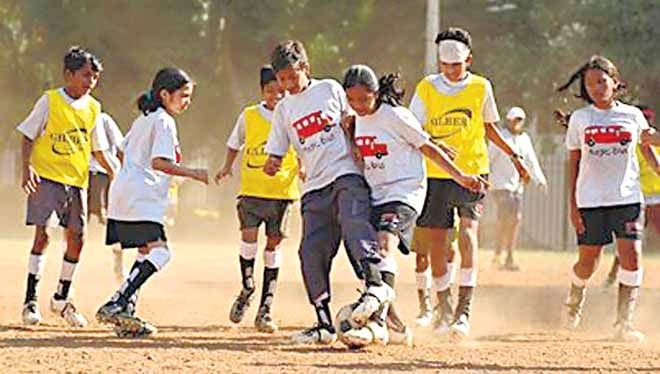

The Laureus World Sports Awards are considered to be one of the most prestigious awards on the international sporting calendar. The winners are chosen by the Laureus World Sports Academy, the ultimate sports jury, comprising 46 greatest living sportspersons. Since its inception, Laureus has raised 60 million pounds for sports projects, which have improved the lives of millions of young people around the globe.
The 2014 Laureus awards ceremony was held at the Istana Budaya in Kuala Lumpur, Malaysia.
The awards were given in seven categories: Laureus World Sportsman of the Year, Laureus World Sportswoman of the Year, Laureus World Team of the Year, Laureus World Breakthrough of the Year, the World Action Sportsperson of the Year, the Laureus World Sportsperson of the Year with a Disability and Laureus World Comeback of the Year.
The Laureus sports awards ceremony has been a great attraction because of its star-studded audience. The tradition continued as the Oscar winner Jamie Foxx and Chinese supermodel Du Juan performed along with Rafael Nadal and Sebastian Vettel. This time two additional awards were given: the Laureus Spirit of Sport Award was presented to the Afghanistan Cricket Team and Laureus Sport for Good Award was presented to Magic Bus, a sport-based community project in India.
I was very much excited to know about the Magic Bus initiative in India, which is focused on managing emotions through sports. The Magic Bus programme was of great interest to me as India is our neighbour and we share a lot of cultural and social values. Magic Bus socio-emotional learning curriculum has so far impacted the lives of 250,000 children across India.
This magical journey began in 1999, with the conviction that sport has the power to bring about social change. Somewhat identical to Right to Play programme in Pakistan, Magic Bus also faced numerous challenges along the way to develop a suitable curriculum. I think that Magic Bus being a local Indian programme has far more flexibility to plan, evolve and execute its schemes as compared to Right to Play, which despite being the lead international Sport for Development organisation has to mostly remain within the prescribed international framework, given by its head office in Toronto.
While reviewing the content of the Magic Bus curriculum, I observed that it focuses on five vital impact areas: formal education, gender, health issues, right to play and socio-emotional learning through sport.
Each impact area consists of a set of messages which are delivered during weekly sport sessions. All of the objectives in each impact area are interrelated and thus lead to holistic development of children.
The sessions last for two hours with one Community Youth Leader per 25 children. Each session is broken into six areas: Ice breaker, sporting game, anticipatory hook, the main game activity, sit-breathe-think and the take-away session.
It may be very interesting to note for our education and sport policy experts that 95 percent of Magic Bus children have a school attendance rate of over 80 percent, 42 percent of Magic Bus children are girls and 82 percent of Magic Bus children believe that it is just as important to invest in a girl’s future as of boys. Most of you may be well aware of the anti-smoking campaigns, on which huge amounts of money are spent in our country, but without any concrete results to show.
The Magic Bus health programme in this regard is very interesting as 100 percent of Magic Bus graduates believe that smoking is extremely harmful for health and have become the community health ambassadors.
This vital initiative in India is not only about statistical data, but many human success stories stand behind it. This is neither a foreign agenda nor an alien effort aimed at cultural change. It is aimed at bringing empowerment to the marginalised through sport. Twelve-year-old Akash, who had never been enrolled in any school, has rewritten his future and learned how to dream big through this Magic Bus programme.
Akash’s father was an auto rickshaw driver in Hyderabad’s Old City. He died when Akash was just a baby, leaving his family in very poor condition. Finding one day meal was a struggle, says Akash. When Magic Bus started its operations in Hyderabad, Akash was lucky to be picked for a 30-member group of children.
Through the Magic Bus programme, he received something which he had never experienced before in his life: individual attention by the coach.
The magic of sport was like a fairy tale for Akash. The curriculum, which is designed by Magic Bus to walk the child through his fears, helped him connect to his dormant aspirations and make him realise that nothing is impossible in this world.
Akash now goes to a school free of cost, as mandated under the Right of Children to Free and Compulsory Education Indian Act of 2009. He is not interested in breaking walnuts with his forehead and getting his name in Guinness Book of World Record, but he is rewriting his own future and the future of his poor friends.
He is the best example for school dropouts. Through play-based, child-friendly communication, Akash has internalised the fact that formal education is the first step towards breaking the cycle of poverty.
We must thank Laureus organisers for including the Sport for Good category and identifying the excellent programme of Magic Bus for this well-deserved award, which will act as a catalyst for other similar programmes in the region, to promote the cause of Sport for Development and Peace, to impact the lives of poor and marginalised children.
The laurels won by the Pakistan Street Football Children in Rio De Janero need not be over emphasised. If the government, along with concerned NGOs, invests properly in the health and education of these children, and provides them a complete support package, there is no reason why these children and many other marginalised children of our society cannot lead fulfilling lives.